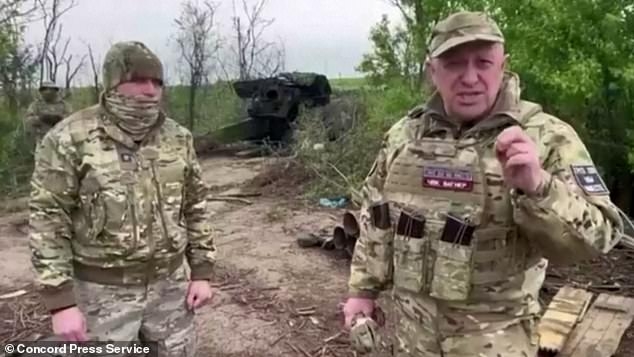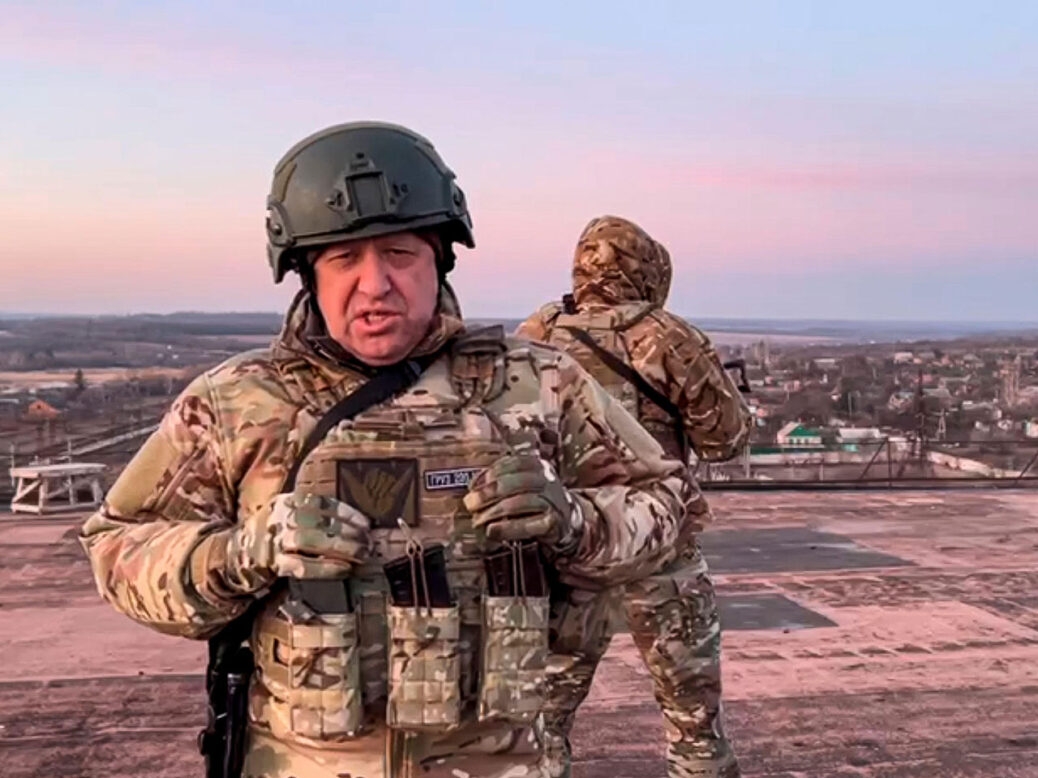In an unprecedented escalation of internal discord within Russian military ranks, Yevgeny Prigozhin, head of the private military contractor Wagner, has blamed Russian military units for abandoning battle and allowing Ukrainian forces to regain ground.
Prigozhin, often critical of Russia’s Defense Ministry and its leadership, took his grievances to an entirely new level when he accused a Russian brigade of retreating from its positions south of Bakhmut, resulting in heavy casualties among his fighters. The tirade came on the same day as the Kremlin’s commemoration of victory over Nazi Germany, adding an additional layer of controversy.
Prigozhin detailed how the Russian unit, known as the 72nd Brigade, abandoned a front nearly two kilometers wide and 500 meters deep. This retreat allegedly resulted in the death of about 500 of his fighters due to the strategic importance of the position. Prigozhin also criticized another private military contractor, “The Blue Torch,” accusing it of scattering like the 72nd Brigade.

Prigozhin’s unusually blunt public criticism of the Russian military illuminates possible internal fractures within the Russian military complex. His words suggest a lack of coordination and mutual trust between the official Russian military and private military contractors, potentially undermining the effectiveness of Russia’s military strategy in Ukraine.
The 72nd Brigade, which Prigozhin accused of desertion, is part of the Russian military’s Western Military District. While Prigozhin acknowledged the retreat, he shifted blame away from the soldiers and onto their leadership, suggesting that systemic issues within the military hierarchy were responsible for the failures on the ground.
The Ukrainian military has confirmed gains south of Bakhmut, a significant development in a region where territorial shifts have typically been incremental. The Ukrainian Third Assault Brigade, making strides in the region, reported eliminating dozens of Russian soldiers and seizing several depots containing enemy ammunition and armored personnel carriers.
This strategic advance by Ukrainian forces, if sustained, could ease resupply efforts in Bakhmut and potentially expose Russian units in the city’s southern part to attacks from multiple directions.
Last week, Prigozhin lambasted Russia’s military leadership in front of his deceased soldiers, attributing “tens of thousands” of Wagner casualties to their incompetence. He also threatened to withdraw his troops from Bakhmut due to inadequate ammunition supply, only to retract his threat after promises of more ammunition were made.
This ongoing discord within Russian ranks could alter the dynamics of the Ukraine conflict, particularly if it reflects broader dissatisfaction and disarray within the Russian military apparatus. Prigozhin’s outspoken criticism not only offers a rare glimpse into the internal workings of the Russian military but also underscores the potential vulnerability that can be exploited by Ukrainian forces to regain control of contested territories. As the conflict evolves, the ability of the Russian military and private contractors to coordinate their actions effectively will be a critical determinant of their success or failure.
©world-news.biz
